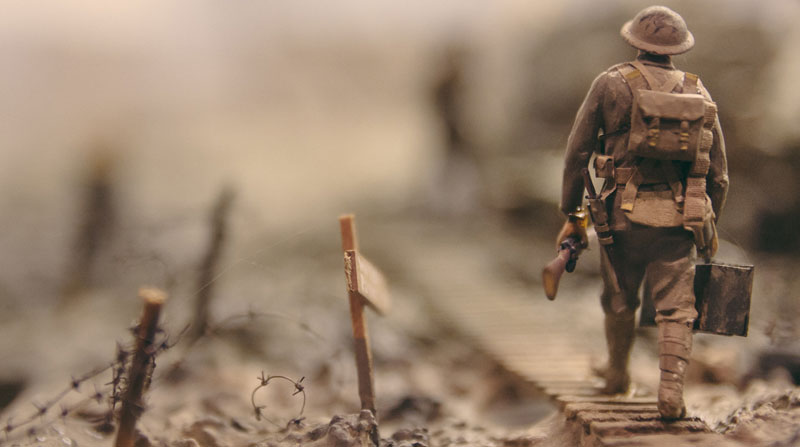Originally published in September 02, 2019. Last updated on April 18, 2025
In the age of digital transformation, the youth of Kashmir stand at the edge of an extraordinary opportunity—one where boundaries are no longer defined by geography, and potential is measured by innovation, adaptability, and digital access. As the global economy embraces knowledge-driven work and remote collaboration, Kashmir’s young population is uniquely positioned to participate in and contribute to a future shaped by technology.
With optimism, resilience, and growing digital exposure, many Kashmiri students and professionals are exploring new educational models, building online businesses, learning global skills, and reimagining what success looks like in a rapidly evolving digital world.
This blog explores how digital education, freelancing, tech entrepreneurship, and digital literacy are becoming powerful tools for youth empowerment in Kashmir, and how global platforms are playing a role in shaping a more connected, hopeful future.
1. Digital Education: Learning Without Borders
Access to education has always been central to growth—but access to digital education now redefines the meaning of learning. Whether a student lives in Srinagar or Sopore, Baramulla or Anantnag, internet-enabled devices can offer classrooms beyond walls.
Global Learning Platforms Creating Local Impact
Platforms like Coursera, Khan Academy, edX, and YouTube have made it possible for Kashmiri youth to learn directly from the best universities and instructors in the world—often at little or no cost. Through online courses in computer science, AI, entrepreneurship, and digital marketing, students can now build globally relevant skills from the comfort of their homes.
Self-Paced, Inclusive, and Empowering
One of the most powerful aspects of digital education is that it is self-paced and inclusive. Students who may face challenges in traditional classroom settings due to accessibility, resources, or disruptions can continue their education without falling behind. Learning platforms also allow for multi-language support, ensuring that English isn’t a barrier to participation.
Digital Classrooms and Remote Teaching
Some schools and coaching centers in Kashmir are beginning to integrate virtual classrooms, using tools like Google Meet, Zoom, and Microsoft Teams for remote instruction. With the help of recorded lectures, digital whiteboards, and online assessments, education becomes more dynamic and resilient—even in the face of local challenges.
2. Freelancing: A Global Workforce from Local Homes
While traditional job markets may be limited by infrastructure or location, freelancing has unlocked entirely new possibilities for Kashmiri youth.
Global Platforms, Local Talent
Platforms like Upwork, Fiverr, Toptal, and PeoplePerHour have allowed young Kashmiris to offer services in graphic design, web development, writing, video editing, digital marketing, and more. With strong foundational skills and access to digital tools, freelancers in the valley can earn in global currencies and work with clients across continents.
Freedom and Flexibility
Freelancing provides flexibility to work from home, set one’s own schedule, and grow at a self-determined pace. For many young professionals and students in Kashmir, it has become more than a side hustle—it’s a full-fledged career path that aligns with the modern world’s emphasis on autonomy and agility.
Learning to Freelance
Free resources from Google Digital Garage, Coursera, and YouTube now teach how to build freelancing profiles, bid for projects, and manage client relationships. Local communities are also starting to form online groups to support peer learning and mentorship among aspiring freelancers.
3. Tech Entrepreneurship: Building Ideas into Impact
Entrepreneurship—especially in the tech sector—is on the rise globally, and Kashmiri youth are beginning to tap into this powerful movement.
Why Tech Entrepreneurship?
Digital tools reduce the need for physical infrastructure. A laptop, internet connection, and an idea can be the foundation for a digital startup in fields like:
- E-commerce
- Mobile app development
- EdTech (educational technology)
- Digital content creation
- AgriTech and local innovation
Many youth in Kashmir, even without startup incubators or investor networks nearby, are developing apps, launching YouTube channels, selling handcrafted items online, and coding software for global clients.
Startup Learning Platforms
Websites like Y Combinator’s Startup School, LinkedIn Learning, and Udacity are helping young people in Kashmir understand how to:
- Identify market needs
- Create MVPs (minimum viable products)
- Build digital products
- Pitch ideas effectively
- Monetize apps and services
This is a future powered by creativity, resilience, and digital skills—not just access to capital.
4. Digital Literacy: The Foundation for All Growth
While digital opportunities are expanding, digital literacy remains the bedrock of long-term empowerment.
Understanding Tools and Platforms
Digital literacy means more than knowing how to use a smartphone. It involves understanding how to:
- Safely navigate the internet
- Use productivity tools like Google Workspace or Microsoft 365
- Access digital banking and e-commerce
- Communicate professionally on platforms like LinkedIn
- Protect personal data and privacy
Enabling Communities
Efforts to train teachers, parents, and rural youth in basic digital tools can have a multiplying effect. When one person becomes confident using technology, they often teach others—building small networks of empowered learners.
Blending Tradition with Technology
It’s important that digital literacy doesn’t replace culture—it enhances it. Many young Kashmiris are using digital tools to preserve and promote local art, language, music, and crafts—sharing them with a global audience and creating sustainable models of income.
5. The Role of Optimism and Resilience
Despite challenges in connectivity, infrastructure, or resources, Kashmiri youth have consistently shown resilience and adaptability. Many are self-taught coders, digital artists, and entrepreneurs. They don’t wait for perfect systems—they build from what they have.
It is this spirit that makes Kashmir’s digital future so promising. With every line of code, every online lesson completed, every freelance project delivered, a new story is being written: one of strength, self-reliance, and innovation.
6. Looking Ahead: Building an Inclusive Digital Ecosystem
To fully realize this digital future, collaboration will be key. Here’s how progress can continue:
1. Encourage Public-Private Partnerships
EdTech companies, NGOs, and local leaders can work together to offer free training, devices, and mentorship to underserved communities.
2. Create Digital Skill Hubs
Setting up community tech centers equipped with Wi-Fi, laptops, and facilitators can create safe spaces for learning and entrepreneurship.
3. Expand Access to Online Certifications
More outreach and awareness about programs like Google Career Certificates, Microsoft Learn, and Meta Blueprint can empower youth with job-ready credentials.
4. Celebrate Local Success Stories
Sharing positive examples of freelancers, developers, and digital entrepreneurs from Kashmir can inspire others and build confidence in local talent.
Conclusion: A Future Being Written Now
Kashmir’s digital future isn’t a distant vision—it’s already unfolding. In classrooms enhanced by e-learning, in small rooms where freelancers deliver world-class services, and in young minds exploring the endless possibilities of code, design, and digital creativity, the seeds of transformation are taking root.
As technology continues to connect the disconnected, the youth of Kashmir are showing us what’s possible when access meets aspiration.
They are not just users of technology—they are creators, innovators, and leaders of tomorrow’s digital world.


